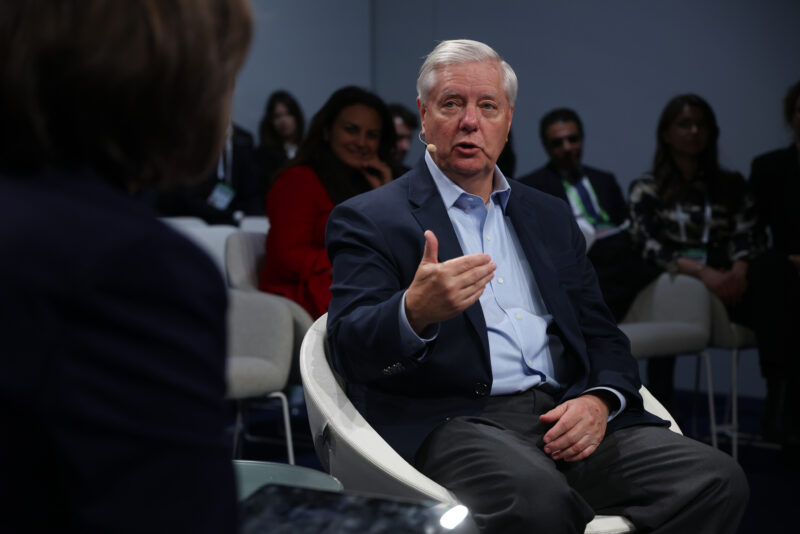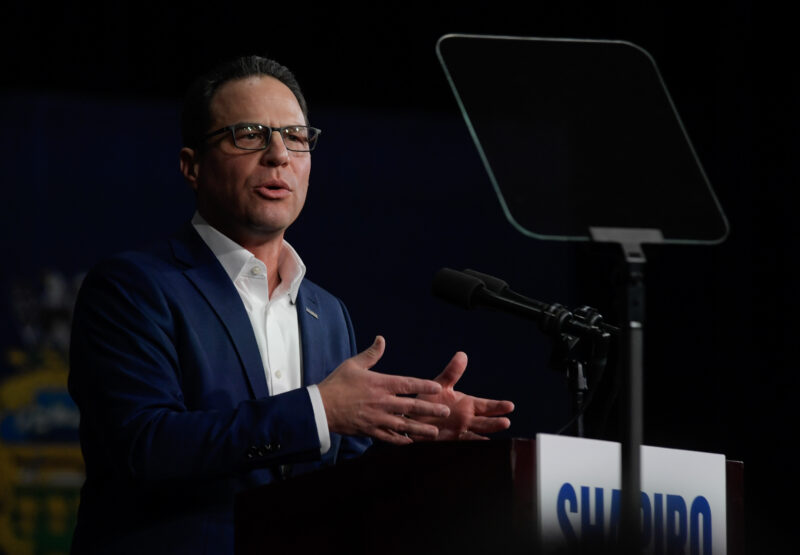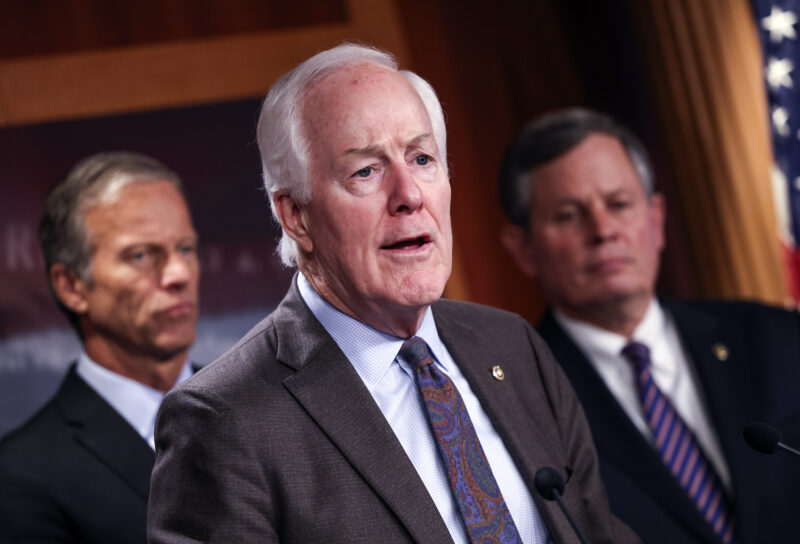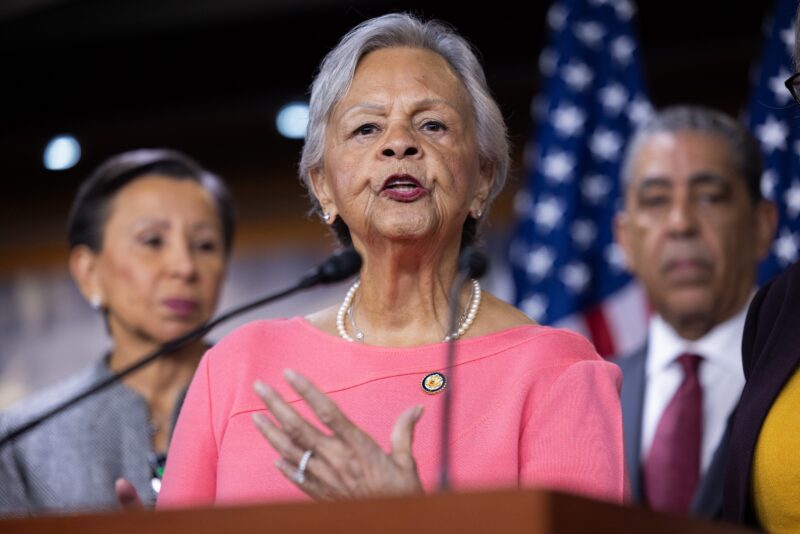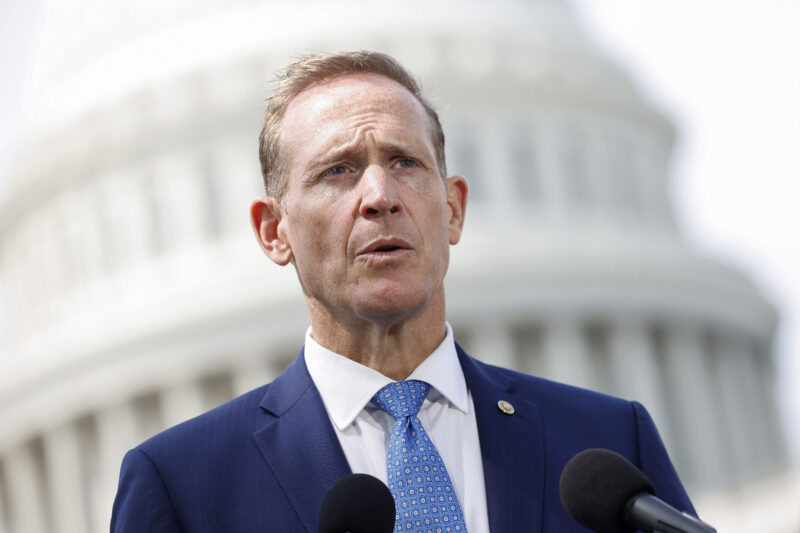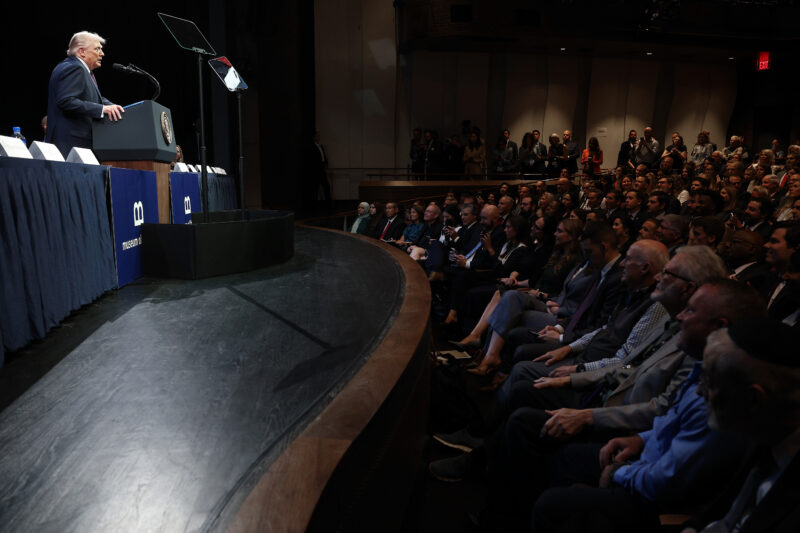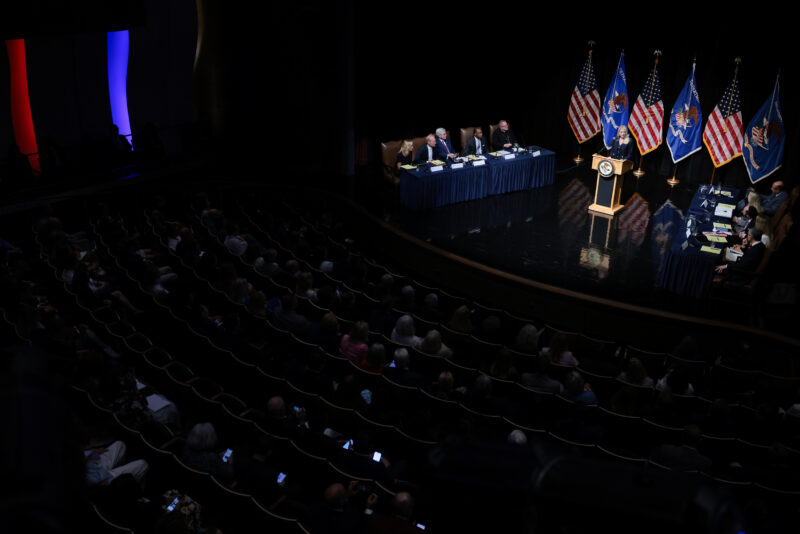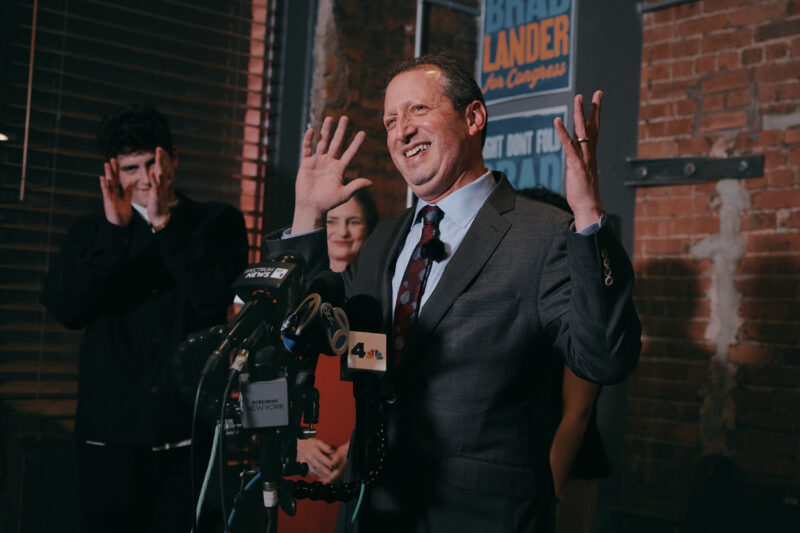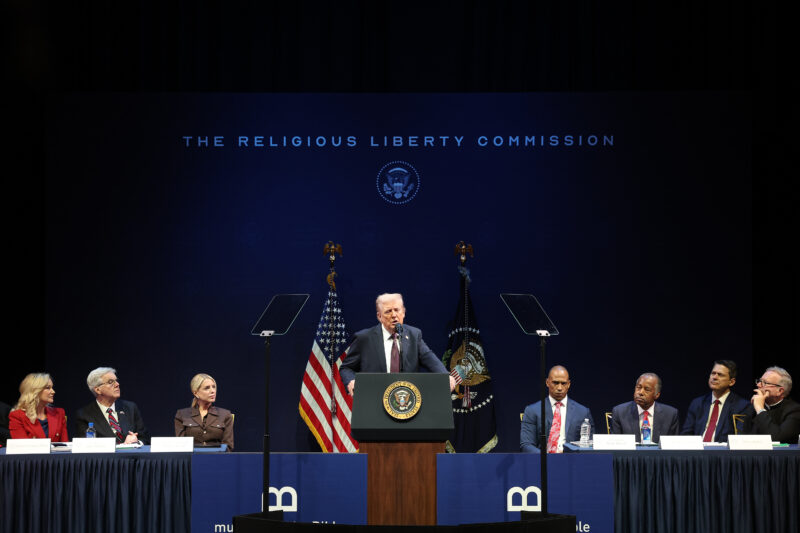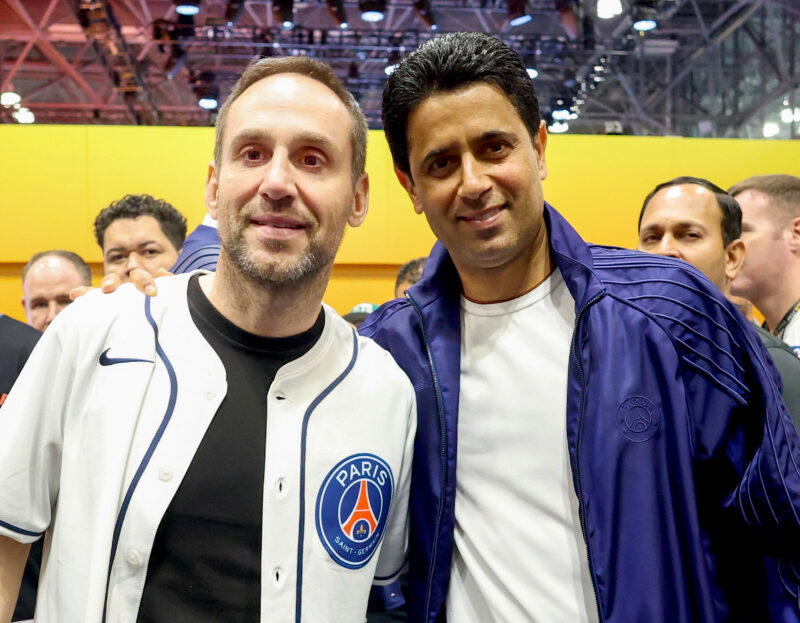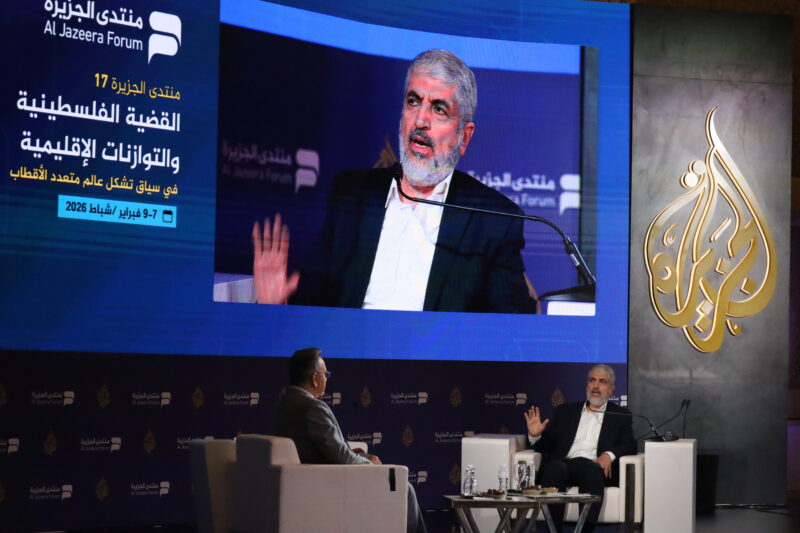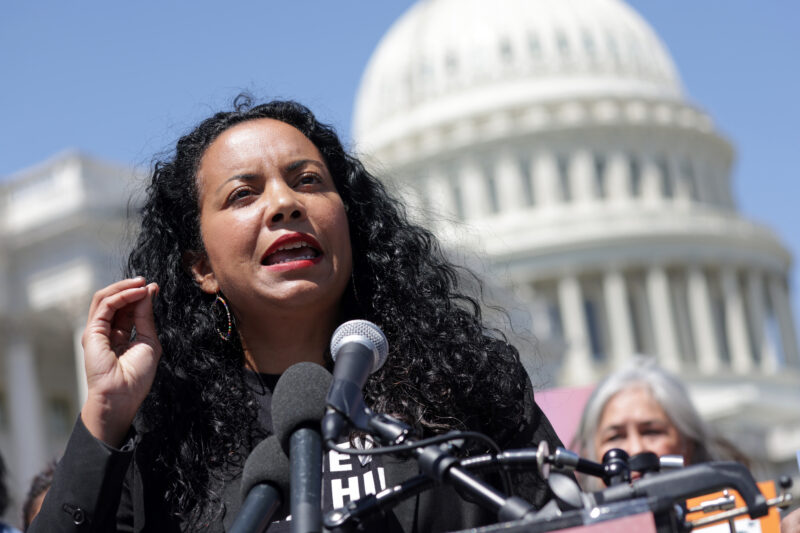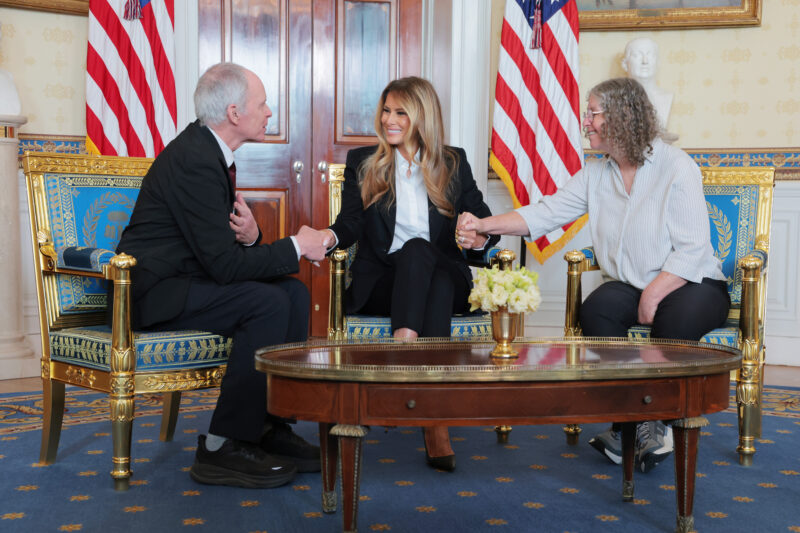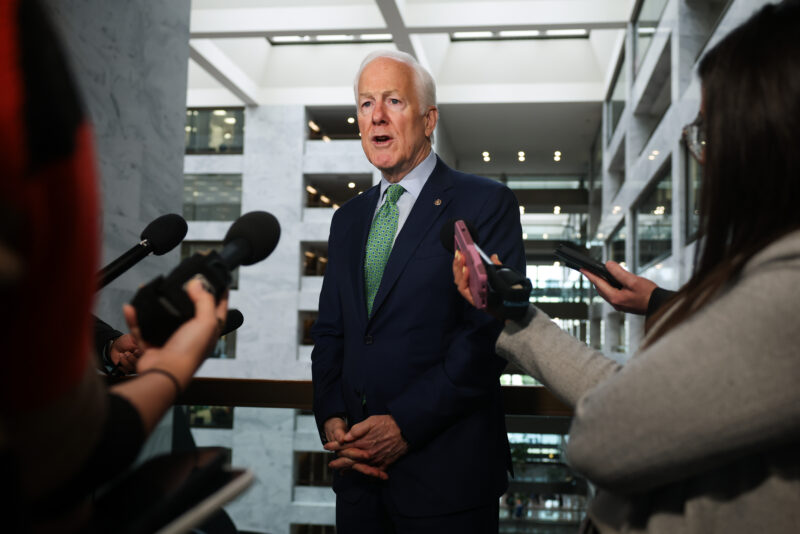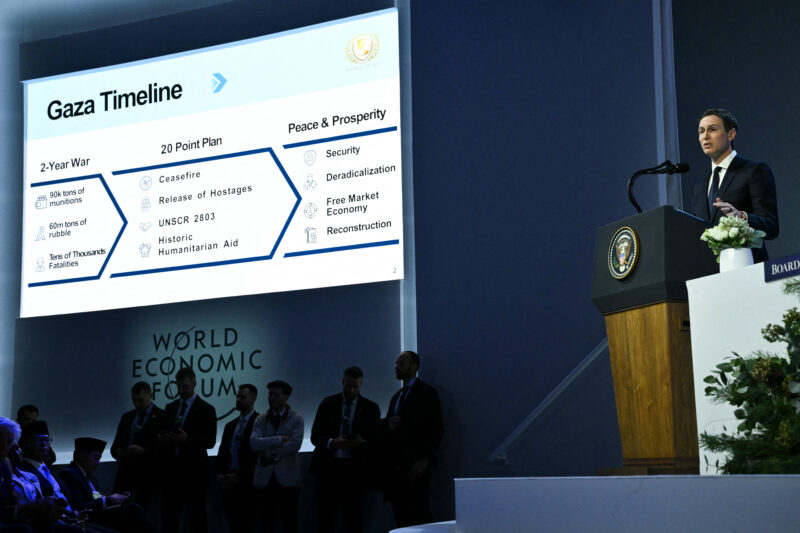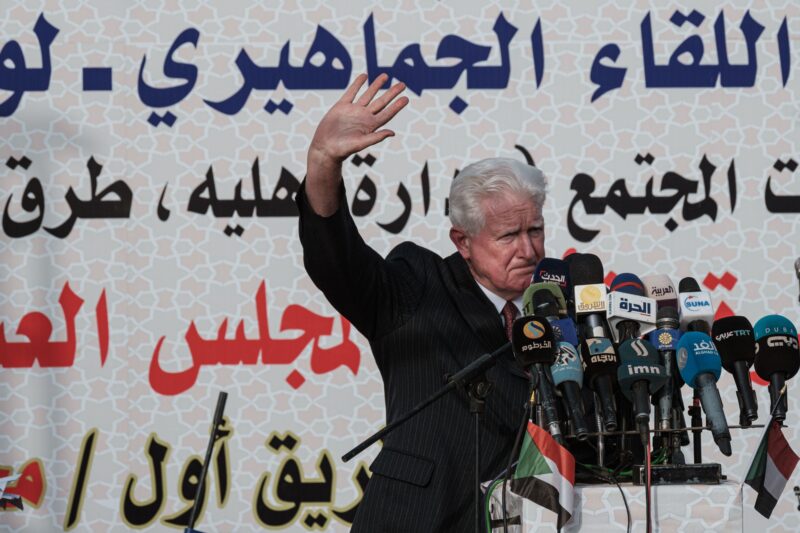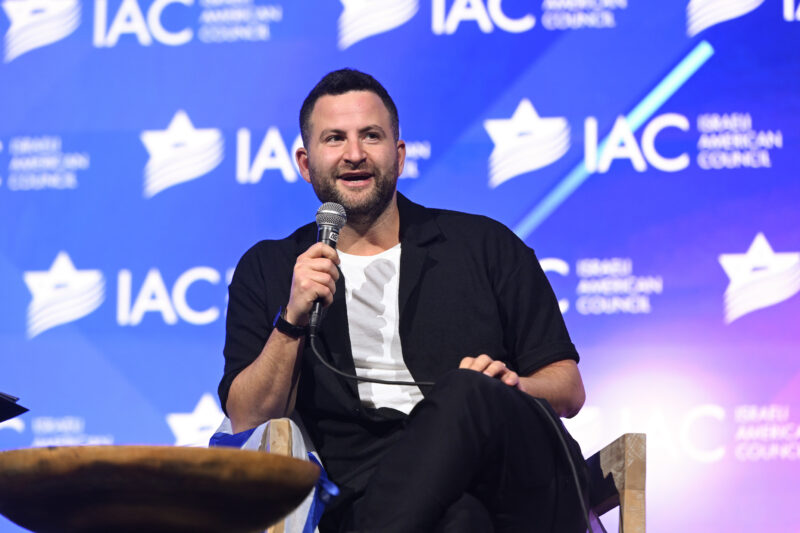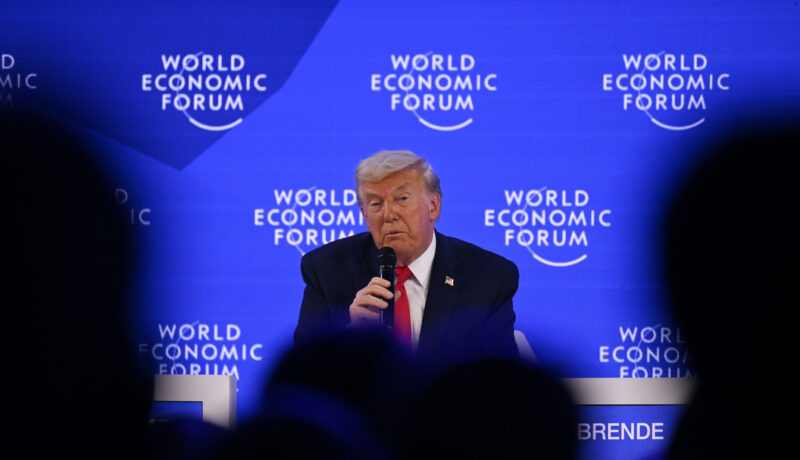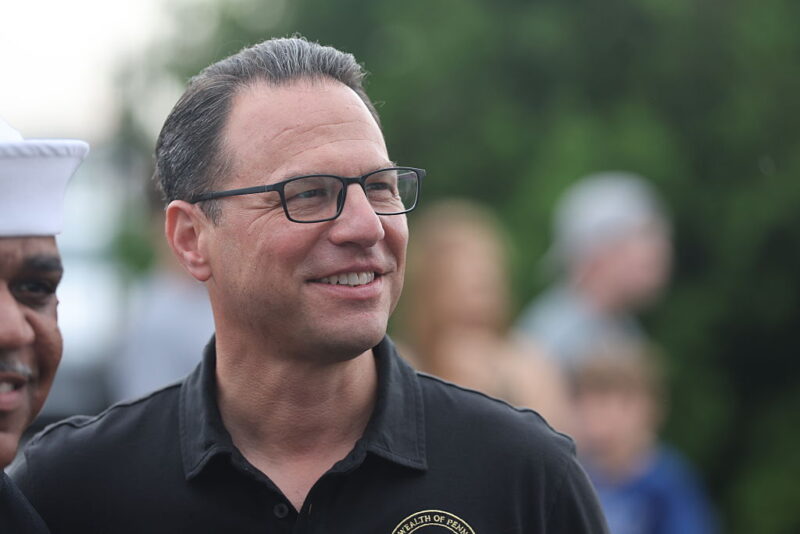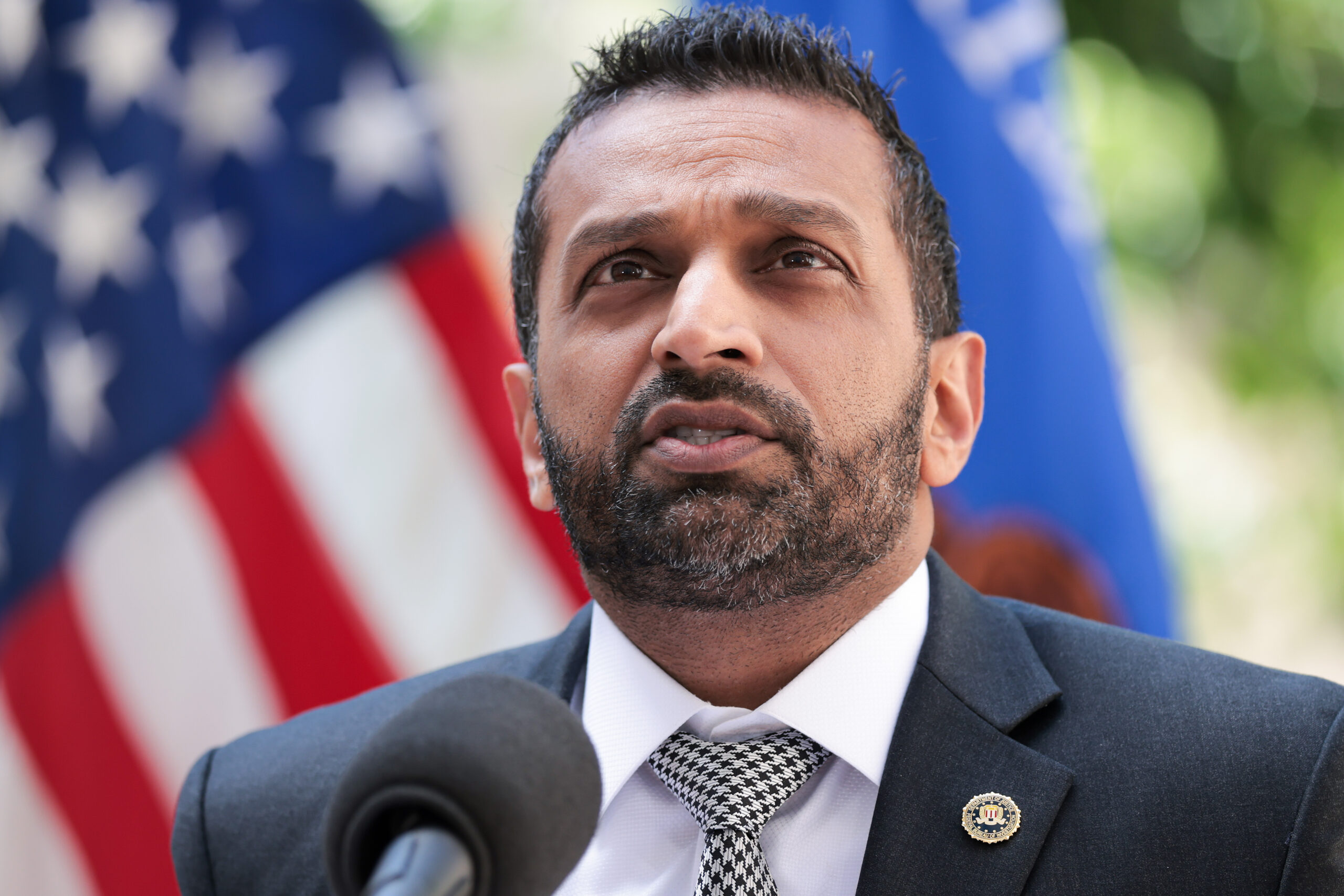Sen. Mitch McConnell in conversation with Jewish Insider
McConnell sat down with JI to discuss rising antisemitism and Israel opposition after Israeli Prime Minister Netanyahu’s joint address to Congress

Bonnie Cash/Getty Images
Senate Minority Leader Mitch McConnell (R-KY) arrives at the U.S. Capitol on July 11, 2024 in Washington, DC.
Senate Minority Leader Mitch McConnell (R-KY) sat down with Jewish Insider on Thursday for an interview about Israeli Prime Minister Benjamin Netanyahu’s visit to Washington, the surging rates of antisemitism in the United States, and the foreign policy divisions within both parties.
The conversation came one day after Netanyahu’s joint session and the subsequent protests that turned violent and saw the defacing of Union Station, and hours after McConnell called on the Department of Justice to pursue the same maximum sentences for those involved in the Wednesday’s violence that prosecutors sought “for the Capitol rioters of Jan. 6.”
Below is a transcript of the interview, edited for length and clarity:
Jewish Insider: I want to start with what you said on the floor this morning about what we’ve seen occur at the Watergate and at Union Station over the past few days. I’m going to quote you, you said it “only underscores the challenge facing the world’s only Jewish state.” Taking a more domestic view, what do you think these last 36 hours say about the current state of antisemitism in the United States and what do you think needs to be done to address it?
Mitch McConnell: I think from the very beginning, this effort to try to convince people that there’s some sort of moral equivalence between how Israel is conducting the war and how it started has been outrageous. [House Speaker Nancy] Pelosi yesterday attacking the prime minister of Israel for what I thought was one of the best speeches I’ve ever heard shows you that on the political left in this country, they’re confused, in my view, about the moral equivalency between being attacked and defending yourself and going after the attackers. So, I think it tells you something about the critics that they can’t tell the difference between Hamas, which started the whole thing and murdered 1,200 people, and the response to that, which has been about as selective as the Israeli military could be.
JI: About Democrats, do you have any thoughts on the dichotomy between [Senate Foreign Relations] Chairman [Ben] Cardin, who presided in Vice President Harris’ place and praised the address, with [Senate Minority] Leader [Chuck] Schumer still not offering his thoughts on the speech? What do you make of that? Is it that Chairman Cardin is retiring and doesn’t have to worry about political considerations?
MM: He was the only one willing to do it. The vice president, who should have been there, was not there. The president pro tem [Patty Murray] took a pass. I think the Democrats in the United States are confused about which side we ought to be on, unequivocally on. They’re divided by a fanatically sort of anti-Israel crowd. Frankly, I’ve been surprised by the level of antisemitism in this country. I had no idea, I thought this was something we had gotten past years ago. I’m pleased that in my party there seems to be no confusion about which side we ought to be on. I’m proud of our folks for sticking with Israel, our Democratic ally. Even the Biden administration trying to tell the Israelis how to run the war or the majority leader saying they ought to have an election, it’s not our job to tell a Democratic ally defending itself how to conduct a war, and by the way, you ought to have an election to get a new prime minister. We don’t do that normally, and I’m certain the Israelis are not confused about seeing the difference in this country.
JI: Do you worry about the national security implications of Israel becoming a partisan issue in this country?
MM: Yeah, it’s different. I’ve been here a long time and on Israel support, it’s always in the past been almost totally bipartisan. There were always some fringe groups usually on the left that saw some kind of moral equivalence between the Palestinian leadership and Israel. I don’t see any. I mean, you had Hamas in Gaza, the PA in the West Bank with corrupt leadership forever. I’ve been here long enough to remember when the Clinton administration offered [then PA President Yasser] Arafat everything they wanted, and he said no. So I’m not confused about this at all. Frequently, we have tough decisions to make around here. I don’t think this should be tough at all.
JI: I’m curious what your biggest concerns are about a Kamala Harris presidency when it comes to foreign policy. Do you view her and President Biden differently when it comes to foreign policy?
MM: I’m gonna assume that since she’s part of the current administration, which has in fact tried to micromanage the war with weapons, and the president hadn’t said this, but the majority leader said they ought to have an election and pick somebody new. I think Harris hasn’t complained about any of that, and my assumption is her policy would be the same as Biden’s.
JI: You served with Harris, albeit briefly, in the Senate. Did you get a sense from your time with her that she was more aggressive toward Israel than President Biden?
MM: Honestly, I don’t know. I think we have to assume she’s, I mean, she’s been a part of this administration for the last three and a half years. My assumption is her views are likely to be the same [as Biden] but if you go back to her career, she was pretty much on the far political left on a whole lot of issues, unrelated to the one we talked about, but pretty far. But the president has been that way too, so I don’t know how to distinguish between them.
JI: On the Middle East front, Israel is possibly on the verge of facing a three-front war given the situation with Hezbollah and the Houthis. I was curious if you think it is in the United States’ best interest to in some way increase their posture against these Iran-back proxies, or if you think that at some point it might be necessary to go to war.
MM: Well, it’s a three-front war already. They’re getting hit by the Houthis up in northern Israel and by Hezbollah. The ultimate solution to this is we have to get serious about Iran, which pays for this and directs it. I think the administration made a huge mistake with this endless effort on nuclear capability. What we need to do is make Iran itself pay a real price for it, and I think we have not ratcheted up the pressure on Iran like we could have. Another thing that’s changed in the last few years is these authoritarian regimes are all together now. You have North Korea, China, Russia, Iran and Iran’s proxies all talking to each other. Even though probably nothing will come of it, I thought it was interesting that the PA and Hamas had a couple of their leaders in China saying they were gonna get together. Nobody takes that seriously, but it does mean the Chinese are involved in this. So what should we be doing? Let me tell you what we ought to discontinue, which is not increasing defense spending enough to even cover inflation. This is a period eerily similar to before World War II. There are members of my party complaining about funding for Ukraine, for example. It is way more expensive to be in a war than to prevent a war. Reagan was right, you get peace through strength. You don’t convey strength by having four years in a row of defense budgets that don’t even keep up with inflation when you’ve got big power competitors, medium-sized terrorist organizations like Iran, and then their proxies. So I haven’t been very satisfied with the Biden administration, either. I thought it was reckless to pull out of Afghanistan. It was a huge mistake, like sending a note out saying that America’s going home. The prime minister made it clear yesterday without American leadership, none of this works.
JI: I’ve talked to a lot of your members on all sides of the ideological spectrum and there is not a ton of agreement on how specifically to counter Iran. Some of your more hawkish members would like to go after Iran’s navy ships or take Iran out of the oil business, but the selective interventionists worry privately about getting into too heated of a conflict with Iran as we’re trying to handle Russia and China. What do you specifically think is the best way forward?
MM: I’m going to disappoint you in saying that I’m not going to tell you exactly what I would do, but what I know won’t work is what we’ve been doing. Generally speaking, when you ratchet up the pressure on Iran, the behavior changes. I would certainly be in the camp of making it extremely uncomfortable to continue what they’re doing.
JI: You brought up the differences in your party on the issue of Ukraine. What do you think of Trump selecting [Sen.] J.D. Vance as his running mate and how [do] you square your differences with him on foreign policy?
MM: On the Ukraine issue, I was pleased that at the end, 32 of our members in the Senate voted for it, the speaker of the House voted for it, the majority leader of the House voted for it, the whip over in the House voted for it. So even though we had entirely too long of a discussion, in which we diverted off the U.S. border issue, at the end it was substantial support for Ukraine. I think that will be the majority view in the next administration if it’s a Trump administration.
JI: You don’t worry about him trying to influence the president to-
MM: Well, I have a difference of views on this subject, but I’m not leaving the Senate and intend to be pretty outspoken about it.
JI: We’re all very excited in the press corps for you to apparently be doing hallways again. We are very excited at that notion, sir. On the topic of former President Trump, he is meeting with Prime Minister Netanyahu tomorrow. Is there anything you’re hoping to hear after that meeting?
MM: Last night, I had a private meeting with Prime Minister Netanyahu and we talked about a variety of issues for quite a long time. Obviously, I know President Trump pretty well. I had a lot of deals with him for the four years he was there and I’m pretty confident that he will care about the advice of not only Prime Minister Netanyahu but a lot of the rest of us about the role America ought to play in the world. I’m glad the prime minister’s going to see President Trump, and I think he’ll say to President Trump the same thing he said publicly on the floor yesterday.
JI: With regard to combating terrorism, a number of your Democratic colleagues have begun saying that Hamas cannot be completely defeated. As much as they would like for them to be defeated, they’ve largely argued that the displacement of Palestinians is going to create so many people who end up being recruited into terrorism, and that the war in Gaza has created more terrorists than it’s killed. What would you say to your Democratic colleagues?
MM: Let me go back to what I said earlier. It’s not our job to tell the Israelis what they can live with, or how to conduct the war, or whether they ought to have an election. We ought to be supporting our good friend, the only Democratic government in the Middle East, and not trying to tell them how to run the war or what they can live with after the war is over. That’s their neighborhood. And so I don’t agree with trying to stipulate, we’ll give you this kind of weapon but not yet, or don’t take this particular city. It’s not our job to tell them how to win the war or what they can live with after.
JI: One last question, what would you say is your biggest takeaway from this week after seeing and speaking to the prime minister and hearing his speech, and seeing the varied reactions from Democrats?
MM: It’s pretty clear that the Democrats are divided on Israel, and that is new. The whole time I’ve been here, we’ve been on the same page as Israel. I think the most depressing thing that happened was not in Congress but out in the streets. I mean, the behavior of the demonstrators is outrageous. It’s one thing to have arguments in the Congress. I wasn’t particularly surprised by any of the Democrats who took a pass on showing their support for Netanyahu, but I think the level of antisemitism and the behavior, the kinds of demonstrators that we saw was disturbing.
Please log in if you already have a subscription, or subscribe to access the latest updates.




